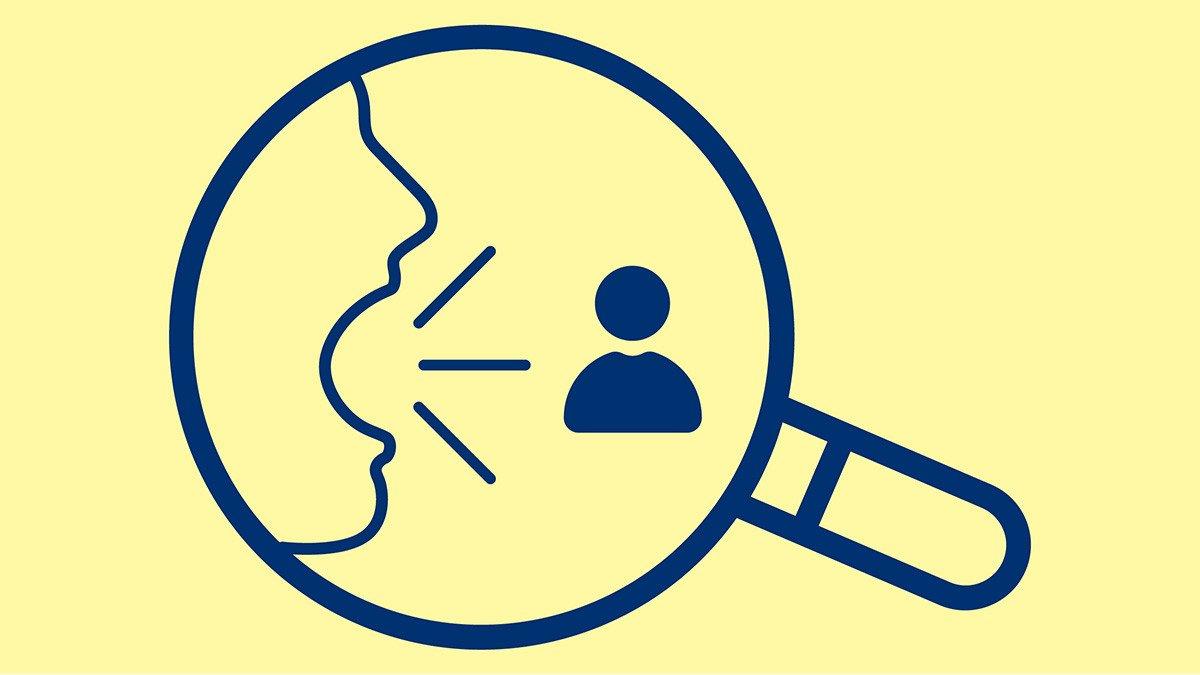
To make the charity sector safe for everyone, we need to Speak Up
We know that in the charity sector it can be difficult for colleagues to challenge bad practice. At Wellcome, we want to change this. That’s why we’ve developed Speak Up – a new initiative to help us build a real culture of trust.

Working at a charity like Wellcome means trying to make the world a better place. But it’s not just what we do that matters – how we do it is just as crucial. We’ve created Speak Up to empower our staff to tell us where the problems are.
Our Speak Up policy outlines our commitment to supporting a workplace culture where staff can raise any concerns about potential wrongdoing in the organisation, in confidence and without fear of retaliation. Wrongdoing can take many forms – from abuse of confidential information and fraud, to bullying and harassment. We want to make sure that any member of staff can raise their concerns freely, with the trust that we will address them in a fair and consistent way.
Our policy sets out the support that staff can expect from us when they raise a concern. We have established a Speak Up reporting line, through which colleagues can choose to raise issues under their own name or anonymously. We’re also committed to zero tolerance for retaliation against staff who speak up.
For those who are unsure about whether to raise a concern, we have a partnership with the charity Protect. Staff can speak to trained, impartial advisors in confidence, who will talk through their concerns and help them understand their options and any potential implications.
Empowering people to feel safe
Policies are essential but they are not the whole solution – people won’t speak up just because we ask them to. What’s crucial is to catalyse feelings of psychological safety and inclusion. We know it’s hard for people to speak up about wrongdoing, so we need to give them all the support we can.
Ideally, I’d like colleagues to feel confident enough to raise issues early, before they escalate. If people feel forced to sit on concerns until they build up and become intolerable, it’s very hard to reach a positive solution. Instead, we want staff to feel empowered to say, ‘I’m uncomfortable with how this was done. Can we talk about it?’ In recent years we’ve seen a number of high profile scandals unfold in the charity sector. I believe many of these harmful incidents could have been avoided if those organisations had a culture where employees felt confident to speak up.
All of this echoes what we’ve heard from the research community, too. In our survey of more than 4,000 researchers, just 37% of participants told us they’d feel comfortable speaking up about bullying and harassment. We’re campaigning to build a better research culture – and building a healthier culture within Wellcome is key to that.
Work with us
Speak Up is a really positive step towards building a healthier workplace culture at Wellcome. But we don’t have all the answers. That’s why we’re joining forces with other charitable organisations to explore the best ways to build a culture where staff feel safe enough to raise concerns.
The Charity Sector Speak Up Network is a group of charitable organisations working together to share practical experiences and ideas on how to develop a culture of trust. By learning from and supporting each other, we hope to drive real progress across our sector.
Crucially, I think real change will come through leadership within the sector – external regulation won’t be enough. We don’t just want to comply with regulations, we want to push ourselves to create the healthiest culture we can. If compliance is making sure we clear the high jump bar, what we’re trying to do is raise the bar as high as possible. To make this a reality, we all need to keep listening and learning.
Do you work in a charitable organisation and want to know more? Get in touch.

